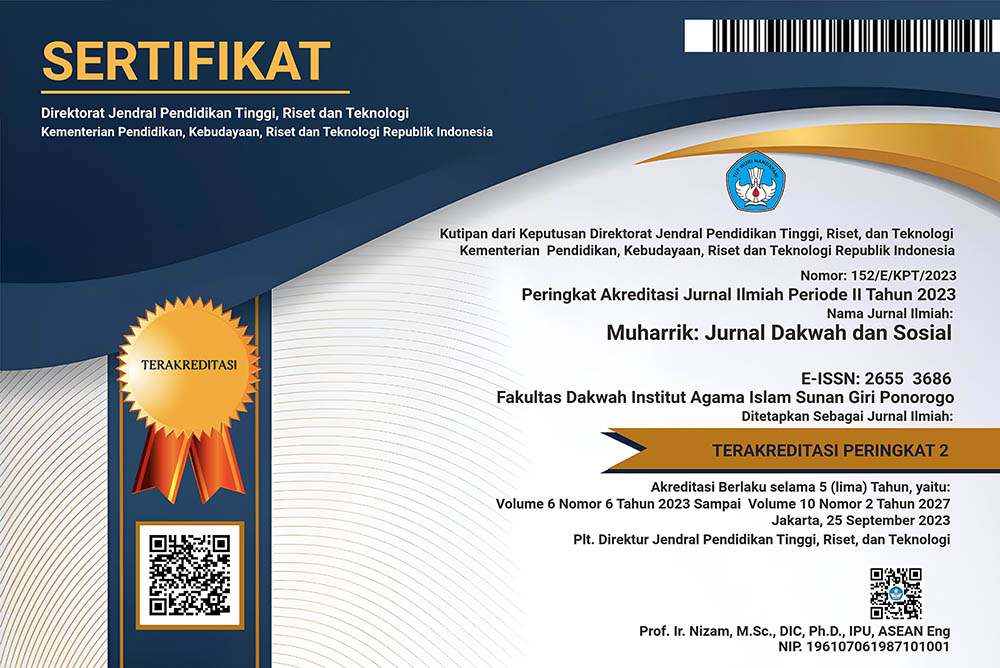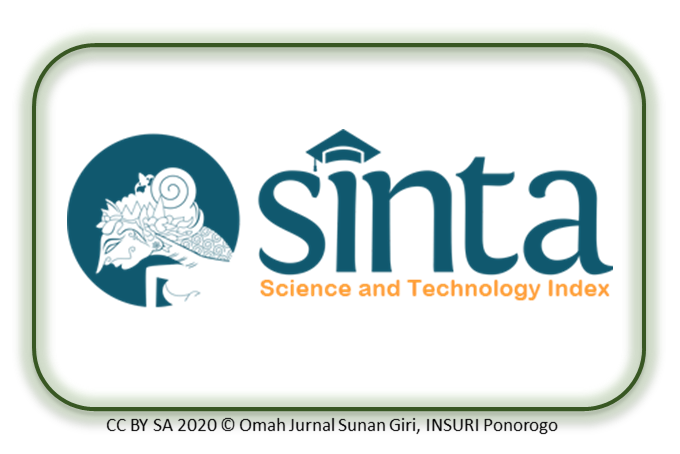Integrating Transformative and Servant Leadership with Islamic Values: Implications for Local Government Effectiveness in Indonesia
Keywords:
Transformative Leadership, Servant Leadership, Regional GovernmentAbstract
Leadership plays a crucial role in determining the direction and success of local government in Indonesia. This study aims to analyze the relevance and implications of the concepts of transformative leadership and servant leadership from an Islamic perspective on local governance. Both leadership models emphasize moral values, empathy, and empowerment, which align with Islamic leadership principles such as justice (al-'adl), trustworthiness, and community service. In the context of local government, the application of these values is expected to strengthen bureaucratic integrity, increase public trust, and create policy innovations oriented toward the interests of the people. This study used a qualitative method with a descriptive-analytical approach, with secondary data obtained from scientific literature, religious documents, and public policy sources. The results indicate that the application of transformative leadership and servant leadership principles based on Islamic values has a positive influence on the effectiveness of local government in Indonesia. Leaders who integrate a transformative vision with a spirit of service have been shown to improve bureaucratic performance, strengthen public trust, and encourage innovation in public services and sustainable development. Islamic values such as justice, trustworthiness, and moral responsibility serve as the foundation that strengthens transparency, accountability, and a service-oriented approach to the community.
References
Akbar, M. R. F., Farid, M. S., Pambudining, Z. C., & Putra, A. (2024). Analisis efektivitas kepemimpinan kharismatik terhadap kinerja dan keberhasilan organisasi: studi kasus industri manufaktur. Indonesian Journal of Public Administration Review, 1(3), 16-16.
Bass, B. (2015). Transformational leadership theory. In Organizational Behavior 1 (pp. 361-385). Routledge.
Burns, J. M. (2004). Transforming leadership: A new pursuit of happiness. Grove Press.
Deng, C., Gulseren, D., Isola, C., Grocutt, K., & Turner, N. (2023). Transformational leadership effectiveness: an evidence-based primer. Human Resource Development International, 26(5), 627-641.
Gandasacita, I., & Asy'ari, H. (2024). Konsep dan Implementasi Servant Leadership dalam Kepemimpinan Modern. Al-Ubudiyah: Jurnal Pendidikan dan Studi Islam, 5(2), 241-247.
Hakim, L. (2022). Kepemimpinan transformatif kepala sekolah dalam meningkatkan mutu pendidikan. JIEM: Journal Of Islamic Education and Management, 2(2), 46-58.
Haq, N. (2022). Konsep Maslahah dalam Kepemimpinan Islam dan Implementasinya di Hidayatullah. Ulumul Syar'i: Jurnal Ilmu-Ilmu Hukum dan Syariah, 11(2), 1-14.
Hasanah, N. A., & Maunah, B. (2023). Kepemimpinan Transformatif Dan Budaya Kerja. JoIEM (Journal of Islamic Education Management), 4(2), 153-165.
Jahidi, I., & Hafid, M. (2017). Transformasional leadershif dan servant leadership: tantangan kepemimpinan dalam menghadapi era global. CosmoGov: Jurnal Ilmu Pemerintahan, 3(2), 219-231.
Mahirun, M., Suryani, S., & Nasution, N. B. (2021). Kepemimpinan Transformatif Sebagai Model Pengembangan Sumber Daya Manusia Yang Kreatif. Pena: Jurnal Ilmu Pengetahuan dan Teknologi, 35(2), 64-76.
Monica, R. L., & Partina, A. (2024). Pengaruh servant leadership terhadap organizational citizenship behavior (OCB) dengan kepuasan kerja sebagai variabel mediasi (Studi pada Pegawai BKPSDM Kabupaten Klaten). Cakrawangsa Bisnis: Jurnal Ilmiah Mahasiswa, 5(1), 45-56.
Muhadjir, N. (1996). Metodologi penelitian kualitatif.
Nadir, M. (2017). Pengaruh servant leadership, karakteristik individu, budaya organisasi terhadap komitmen organisasional dan kinerja Aparatur Sipil Negara pada Pemerintah Provinsi Sulawesi Barat. Pepatudzu: Media Pendidikan dan Sosial Kemasyarakatan, 12(1), 38-50.
Nurhayati, N., Kusuma, H., & Rahman, A. (2024). Strategi Tata Kelola Kolaboratif Dalam Meningkatkan Motivasi Pelayanan Publik: Peran Gaya Kepemimpinan Transformasional Dan Kualitas Relasional. Jurnal Agregasi: Aksi Reformasi Government dalam Demokrasi, 12(2), 154-174.
Putri, E. S., Faudzi, M. Y., & Kurniati, K. (2024). Peran Pemimpin dalam Menangani Konflik Keamanan Nasional: Perspektif Etika Politik Islam. Ethics and Law Journal: Business and Notary, 2(2), 202-217.
Rizal, S. (2019). Servant leadership dalam implementasi nilai-nilai trilogi dan panca kesadaran santri. Evaluasi: Jurnal Manajemen Pendidikan Islam, 3(2), 162-182.
Rukin, S. P. (2019). Metodologi penelitian kualitatif. Yayasan Ahmar Cendekia Indonesia.
Salwa, A., Saepudin, E. A., Ramadhan, M. R., Hotimah, N., Widiyanti, W., & Ramadani, S. J. (2024). Efek Gaya Kepemimpinan Pemerintah Terhadap Kinerja Organisasi dan Partisipasi Masyarakat. Journal of Multidisciplinary Inquiry in Science, Technology and Educational Research, 2(1), 124-134.
Widyacahyani, A., Herawati, J., & Subiyanto, E. D. (2020). Dampak kepemimpinan transformasional, kepemimpinan transaksional dan servant leadership terhadap kinerja karyawan. Jurnal Sains Manajemen Dan Bisnis Indonesia, 10(1), 68-74.
.
Downloads
Published
Issue
Section
License
Copyright (c) 2024 Herijanto Bekti, Ramadhan Pancasilawan, Syifa Rachmania Komara

This work is licensed under a Creative Commons Attribution-NonCommercial 4.0 International License.
The author(s) retain/s the copyright and grant/s Muharrik: Jurnal Dakwah dan Sosial the first publication rights licensed under the Creative Commons Attribution-NonCommercial 4.0 International (CC BY-NC 4.0) , which allows others to access (search, read, download and quote), share (copy and redistribute the material in any media or format) and adapt (mix, modify and develop) works for legitimate non-commercial purposes, with recognition of the authorship of the work and its initial publication in this journal.












